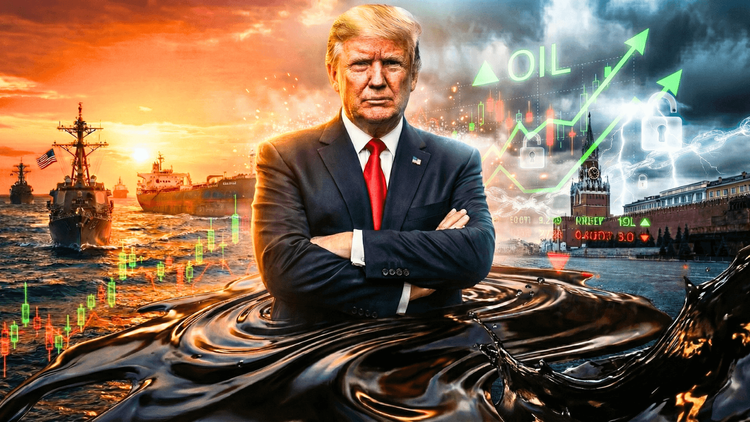U.S. Agriculture Under Fire: Trump’s Tariffs and the Fallout for Farmers
Farmers and consumers brace for economic fallout as Trump’s new tariffs shake up agriculture and trade.

President Donald Trump is once again asking Americans to "bear with me" as he presses ahead with a fresh wave of tariffs on Mexico, Canada, and China. The move, aimed at protecting American farmers, is poised to send shockwaves through the agricultural sector, raising concerns among producers, economists, and consumers alike. While Trump has long championed tariffs as a tool for economic leverage, history suggests the fallout could be severe—higher costs for consumers, billions in losses for farmers, and a ripple effect that may weaken the broader economy.
The Impact on Farmers: A Familiar Struggle
For American farmers, the pain will be immediate and widespread. Corn and soybean prices have already fallen by about 10% since the tariffs were announced, wiping out what little profitability remained for growers. Agricultural economist Joe Janzen of the University of Illinois has called Trump’s assurance that farmers will sell more domestically "tone-deaf" and disconnected from economic reality. The U.S. exports vast quantities of corn, soybeans, and wheat—markets that simply don’t have the domestic demand to absorb the excess if foreign buyers disappear.
Beyond grain, livestock farmers are bracing for turbulence as well. The U.S. imports massive amounts of lean beef from Canada and Mexico, blending it with American-raised fattier beef to produce hamburger meat. With tariffs raising the cost of imported beef, grocery store prices are set to climb within weeks. Meanwhile, pork and poultry producers, who rely heavily on exports to China, Mexico, and Canada, may be forced to slash prices domestically, further eroding profits.
Fertilizer Costs and Equipment Sales Take a Hit
Tariffs won’t just hit farmers on the revenue side—they'll feel it in their expenses, too. More than 85% of potash used in American fertilizers comes from Canada, and higher import costs mean farmers will be paying more to maintain their yields. Fertilizer Institute President Corey Rosenbusch has warned that an open trade relationship with Canada is "vital" for ensuring American farmers can continue producing at scale.
The uncertainty surrounding tariffs has already slowed equipment purchases. Farmers are holding off on big-ticket investments in tractors and machinery, which has repercussions for major manufacturers like John Deere. A downturn in equipment sales would not only hit the agricultural sector but also industrial production, affecting jobs and economic growth.
Meat Prices on the Rise, but Not for Everyone
For consumers, the tariffs will mean higher grocery bills in some areas and unexpected bargains in others. Beef, particularly hamburger meat, is expected to become more expensive within the next two months. The reason? Roughly half of the lean beef imported to the U.S. comes from Canada and Mexico, and those shipments will now come with a hefty price tag.
At the same time, certain cuts of meat could actually get cheaper. Pork producers, for example, rely heavily on exports, especially to Mexico, which is one of the largest buyers of American hams. If those exports slow down due to retaliatory tariffs, pork prices could drop domestically. The same goes for specialty cuts like beef tongue, which are almost entirely sold overseas. If that market dries up, domestic consumers might find some unexpected deals in the meat aisle.
How Farmers Are Preparing for the Worst
For those on the frontlines of agriculture, the latest tariffs are being met with frustration and caution. Many are stockpiling supplies before prices rise further, but there's only so much that can be done. Unlike manufactured goods, farming requires constant input—fertilizer, seed, equipment maintenance—none of which can be stockpiled indefinitely.
Katy Rogers, who runs an organic farm outside Indianapolis, said she rushed to purchase supplies as soon as Trump’s tariff threats resurfaced. "You have to plan ahead, but there’s only so much you can do. We can’t buy a year's worth of fertilizer and just sit on it," she explained.
Steve Kuiper of the Iowa Corn Growers Association echoed those concerns, pointing out that the tariffs will impact both large corporations and small suppliers. "It’s not just us—it’s John Deere, it’s the fertilizer companies, it’s our local equipment dealers. If we’re not buying, they’re not selling," he said.
The Political and Economic Fallout
Trump’s history suggests that if the tariffs start causing too much damage, he may step in with financial aid for farmers, as he did during the U.S.-China trade war in his first term. Back then, his administration paid out more than $22 billion in aid to farmers in 2019 and nearly $46 billion in 2020, though much of the latter included pandemic-related relief.
This time, however, it's unclear how much financial support the government will offer. Trump has been vocal about cutting spending across the federal government, and direct aid to farmers may not be a priority.
Beyond the immediate financial strain, there’s the question of long-term trade relationships. Minnesota Governor Tim Walz warned that these tariffs could drive key trade partners like China, Mexico, and Canada to seek other suppliers—potentially shifting global trade patterns in ways that won’t be easily undone. "For those who think we’re going to win this and Canada is just going to give in, that’s a very simplistic way of looking at it," Walz said.
Will Trump’s Tariffs Backfire?
The big question is how long these tariffs will last and whether they will have the desired effect. Trump's base has long been concerned about inflation and rising food prices—both of which will likely worsen under his trade policies. Timothy Wise, an expert on agricultural trade, argues that the tariffs are "unsustainable" and could ultimately hurt American consumers more than they help farmers.
"It is going to do nothing to help with food inflation in the U.S.," Wise said. "And I don’t find it plausible that the corporate folks surrounding Trump will just sit back and allow him to destroy their foreign markets."
The coming months will determine whether Trump’s tariffs achieve their intended goals or end up causing more harm than good. For now, both farmers and consumers are left with little choice but to "bear with it" and hope for the best.
Conclusion
Trump’s tariffs are shaking up the agricultural industry, with farmers and consumers caught in the crossfire. While the administration argues that protecting American agriculture is the priority, the economic reality suggests a far more complicated outcome. If the tariffs remain in place, farmers will face mounting financial strain, consumers will see higher prices, and the broader economy could suffer.
Whether Trump provides aid to farmers as he did in the past or allows the free market to determine winners and losers remains to be seen. What is certain, however, is that both farmers and consumers are bracing for impact.






